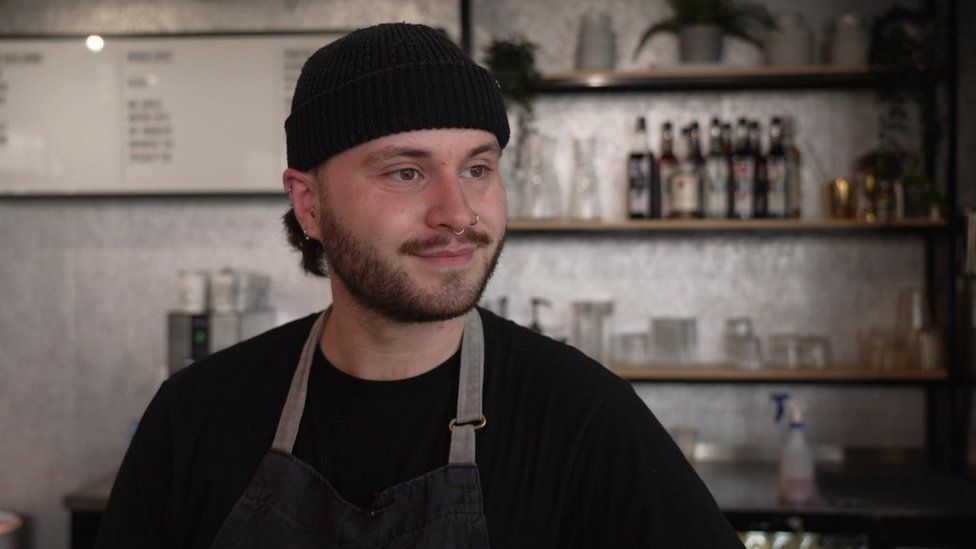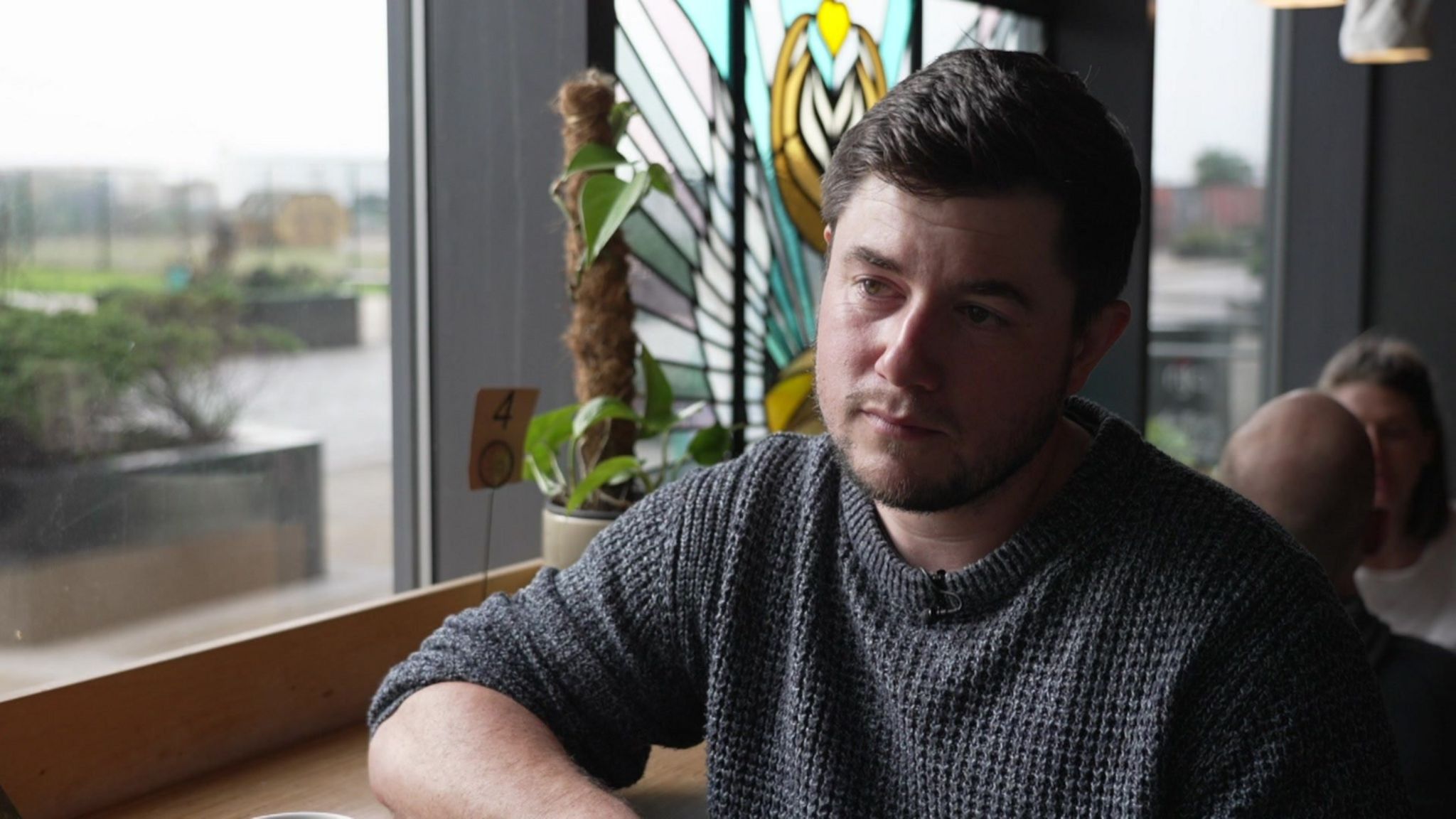 Image source, Getty Images
Image source, Getty ImagesThe minimum wage set by the government, known as the national living wage, is increasing by more than a pound for the first time, providing a welcome boost for 2.7 million low-paid workers.
The main wage rate is rising from £10.42 to £11.44 an hour and will apply to workers over 21 rather than over 23.
Younger workers will also see a rise in the rates that apply to them.
However some businesses say the higher labour costs will make it harder for them to keep prices down.
- A full-time adult worker paid at the minimum wage will see a pay rise worth £1,800 a year
- A 21-year-old, who moves from the lower minimum wage rate to the main rate, will see a £2,300 rise
- The minimum wage for 18-20-year-olds will increase from £7.49 to £8.60 an hour
- Apprentices will also get an above-inflation rise, with hourly pay going up by more than 20%, from £5.28 to £6.40 an hour
The wage hikes will benefit 2.7 million low-paid workers, including Samuel, who works at Grindsmith coffee house in Salford.
The 26-year-old says before the pay hike he was left with about £400 at the end of the month after rent and bills were paid, but felt he was being left "shorter and shorter" each time.
"Maybe for a month you'll be like: 'Oh, I've got money this month' but next month will be a bit of a rough one," Samuel says.

He says the increase in the minimum wage will make up for the way prices have been rising, and help him afford more than just the essentials.
When setting the minimum wage, the government is guided by proposals from the Low Pay Commission, set up to advise them in this area.
The rising cost of living prompted the independent Commission to recommend a bigger rise in the minimum wage. The government accepted the recommendation, saying it meant the Conservatives' target to "end low pay", by lifting the minimum wage to two-thirds of average earnings, had now been met.
However, Samuel's employer, Peter Gibson, the director and co-founder of Grindsmith, says businesses are also under strain from the recent rise in costs.
A rise in wages for the lowest paid means he has to boost pay for other staff to maintain a differential, he says.

"With such a large increase this time, the minimum wage is now catching up to what we would pay our supervisors, so there must be some inflation in their wages as well.
"So for us, as a small business, it's not just a pay increase for minimum wage [workers], it's a pay increase across the company," Mr Gibson says.
To manage the rise in costs, the company will consider increasing prices and cutting staff hours, he adds.
"Our hand's being forced," he says. "It's not to make the company more money, it's to make the exact same amount of money, at the end, but with higher prices."
The Resolution Foundation, an independent think-tank focused on improving the living standards of those on low-to-middle incomes, said the minimum wage increase represented a rise of 7.8% in real terms – once inflation was taken into account – and a 9.8% rise in cash terms.
The Foundation said pay inequality had fallen significantly since 1999 when the minimum wage was introduced, making it "the single most successful economic policy in a generation".





